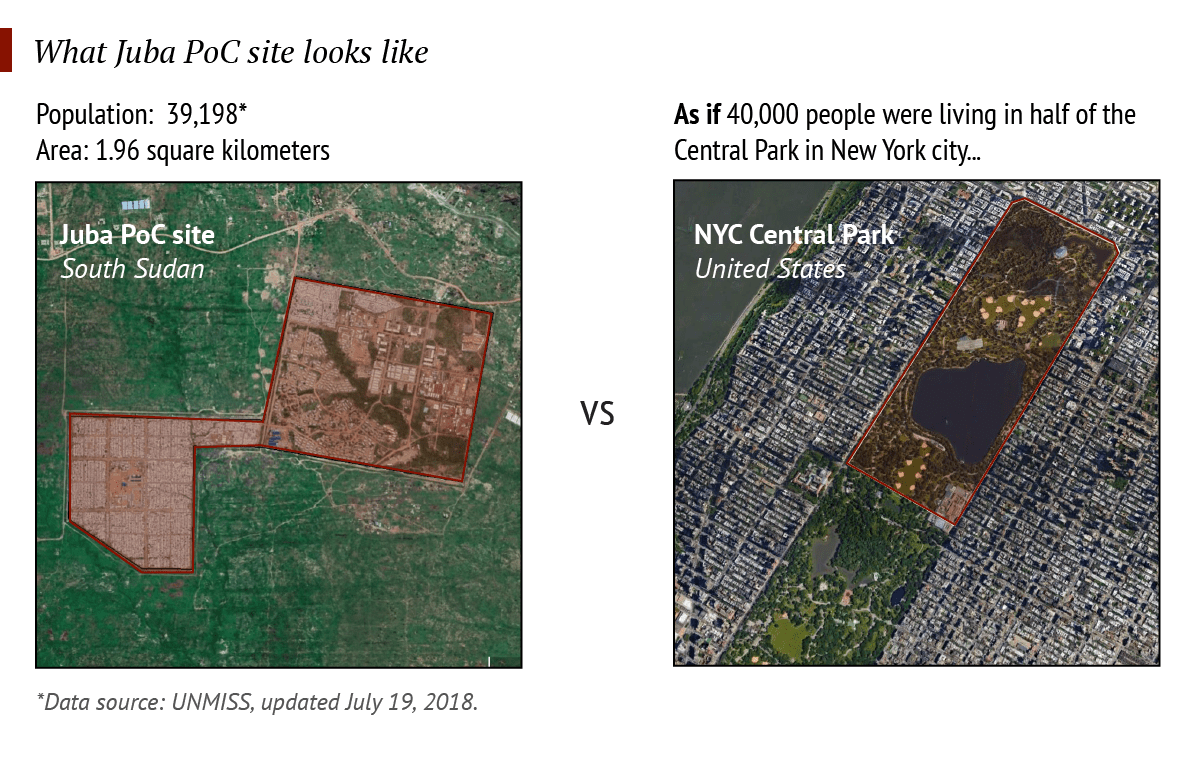Angelina is 35 years old and has three children. She is from Padeah, a small village in the northern region of Unity State. This area is one of the worst-affected by conflict since civil war broke out in December 2013 between the Government and opposition forces.
Warring parties have deliberately attacked civilians living in the area, killing thousands of people and sexually assaulting women and girls. Angelina’s husband was killed in the fighting. Attackers set houses on fire in Padeah and destroyed crops and mango trees to eliminate all food sources. Many of Angelina’s friends were raped and live in constant fear.
Angelina decides to leave Padeah in July 2017. She and her children walk 120 kilometers to a camp in the north. The journey takes about one week and is filled with danger. Abductions are common, and rape is pervasive everywhere in the country. The family has to avoid stepping on unexploded ordinance, and face the risk of being abducted or raped.







